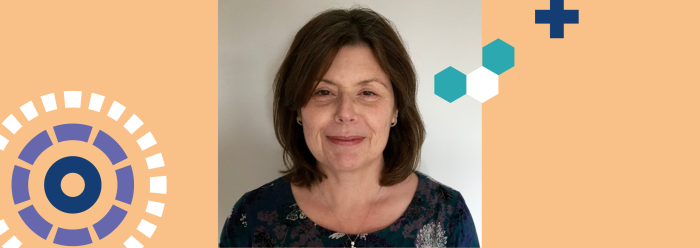Rosanna Fennessy is one of the Public Contributors at ARC East of England. Having experience both in the research field and as a patient representative, Rosanna brings her unique perspective to the interview panel for the ARC East of England Fellowships. In this blog, Rosanna reflects on what it takes to impress the interview panel.

As a Public Contributor at ARC East of England, I was excited to be invited to sit on the fellowship interview panel. Being able to hear about the range of research projects from various health, social care, and voluntary sector professionals is truly inspiring. The impact that research can make on our region and local communities is profound.
I hope, no matter where you are in your fellowship journey, you will find this blog helpful.
"Just applying for the Fellowship programme is an important step in your research journey, and if you have been successful in the interview stage, then congratulations! However, if you have not been successful, then I would encourage you to ask for feedback so you can learn from this and adapt your application next year. We would encourage you to keep trying."
Rosanna Fennessy, Public Contributor at ARC East of England and Panel Member for ARC East of England Fellowship
What should I expect at the fellowship interview?
Interviews can feel daunting, but they are an opportunity to share your vision. The ARC East of England Fellowship interview panel includes a number of research professionals who you will encounter on the programme. It is important to go into the interview knowing that everyone sitting on the panel is eager to hear more about your career so far, your research proposal, and how the fellowship will help you to develop your career path. The interview will last approximately 20 – 30 minutes and as always, preparation is key.
Here are some tips to help you prepare for your application and interview:
- Consider how your research will benefit patients and the public
One of the most important criteria for a successful fellowship interview is to be able to clearly explain how patients and the public will benefit from your research, so in your project proposal this should be well defined and clearly set out. As a Public Contributor, I find this particularly important to me, and only those proposals that have the potential to make a significant contribution to improving outcomes or services for patients, service users or the public will get my vote. While the fellowship enables you to develop your skills as a researcher, ensuring that your research has positive applications for service users is at the heart of the ARC ethos, and we will expect you to be able to discuss this in detail in the interview.
- The Importance of incorporating Public and Patient Involvement (PPI)
It is also a good idea to show the interview panel that you have already engaged patients and the public in the design of your research proposal. You don’t have to undertake extensive PPI activities at this stage, but gathering input from service users and embedding it into your research design will undoubtedly enhance your application. Similarly, you should clearly demonstrate how PPI will be included once the project is underway. This helps the panel see that your proposed outcomes have been developed with service users at the centre of your thinking.
-
Write in plain and concise language
Make sure that your application is written with non-experts in mind. The panel will be made up of individuals with professional knowledge in a variety of areas, but they may not be familiar with the terminology used in your particular field. Avoid the use of jargon and keep technical language to a minimum. If you must use it, make sure you have explained it in your application. Being able to communicate your work to a general audience is a skill in itself, so take the opportunity to practice this in your application and before your interview.
- Remember the fellowship is a 12 month programme
Be realistic about what you can do within the timeframe. Extensive research proposals that require months to set up or to obtain ethical approvals will not produce the results you want and risk losing their potential impact. A well-defined research proposal with realistic timescales is much more likely to be seen as achievable by the interview panel. Spending time operationalising your research question so that it is clear what your project does and doesn’t do, will make it easier for us to evaluate and for you to manage when it is underway.
- How will the fellowship programme benefit your colleagues
Thinking about how obtaining the fellowship for yourself could increase development opportunities within your team or organisation is also important to the panel. For example, explain how the knowledge and skills gained will enable you to support the development of your colleagues and enhance organisational functioning. Think about any legacy from your research project in these terms as well.
- Show your passion!
My final tip is probably one of the most important. The panel will want to see how passionate you are about the fellowship. Not only in terms of enthusiasm for your research proposal and its potential benefits to service users or peers, but also in terms of how the fellowship can develop your own career. Show us that you have a long-term plan and how this fellowship fits into your future goals. The fellowship is aimed at individuals from a variety of professions across the health, social care and voluntary sector and we welcome candidates with a range of skills and qualifications. What the panel is particularly interested in are your thoughts on how the fellowship can build on your existing skills and move you on to the next stage in your career.
Good luck in your application. I look forward to meeting you if you are shortlisted for interview!
Our Fellowship programme aims to equip clinicians, health and social care practitioners, voluntary sector staff, and managers in health and social care services across the East of England with the knowledge and skills to undertake an applied research or implementation project. Applications for the Fellowship programme 2023 is now closed. For more information, please read ‘ARC Research and Implementation Fellowships.’
